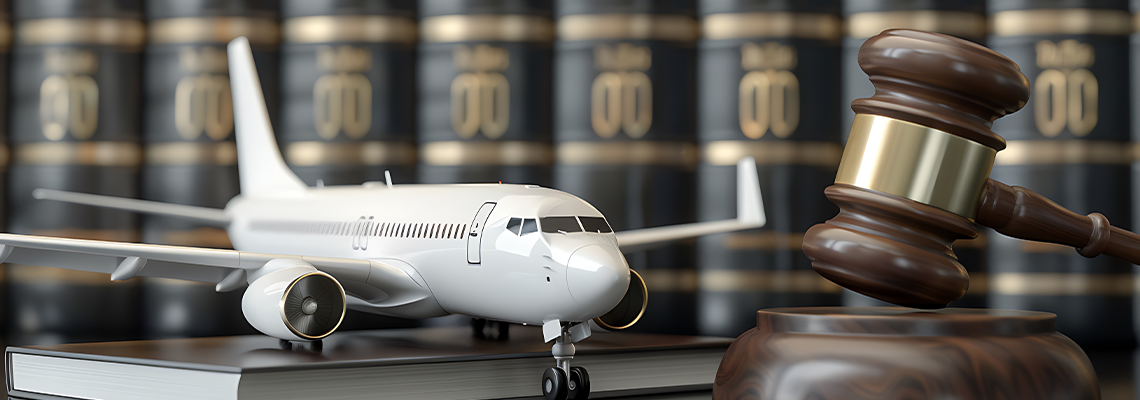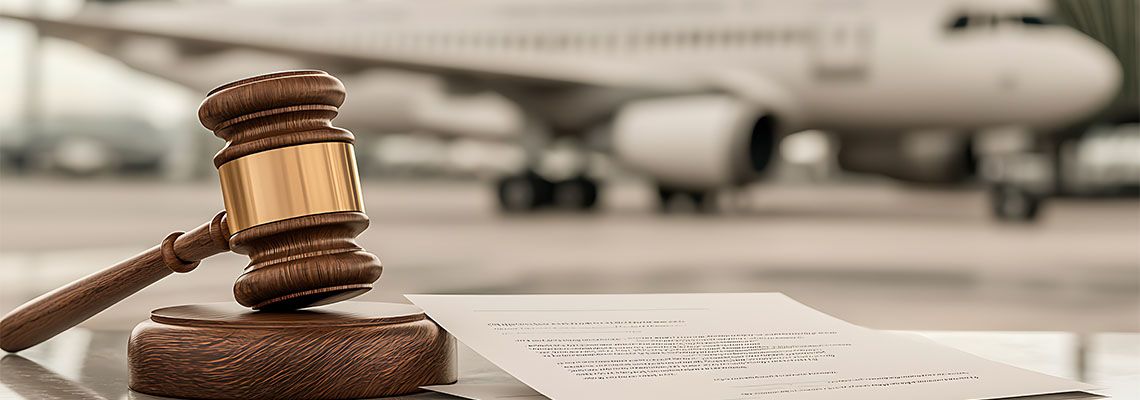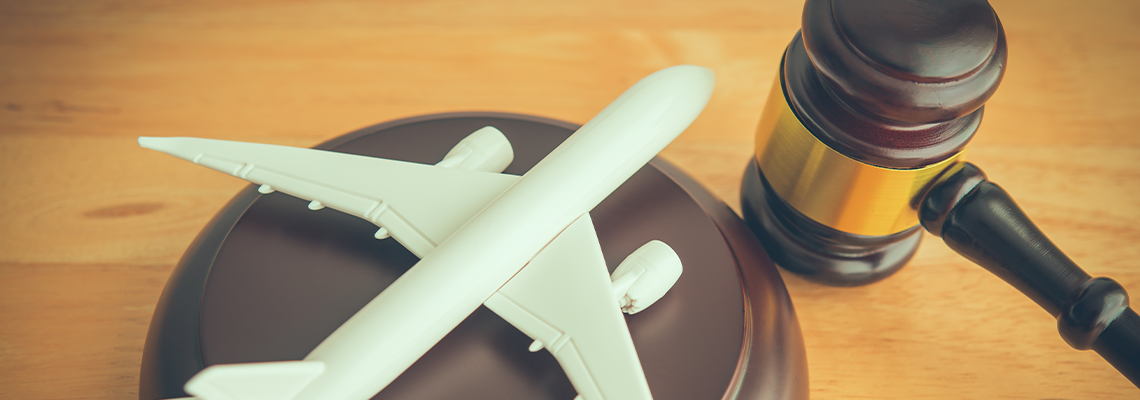Acquiring an aircraft for your business is a monumental step that can revolutionize your operations, improve efficiency, and even offer an edge in a competitive market. However, deciding whether to purchase or lease a plane is no small task.

The Role of Expert Witnesses in Aviation Litigation
When aviation disputes or accidents result in legal action, they often involve highly technical, industry-specific matters that can be too complicated for judges, jurors, and even attorneys to understand fully.
This is where an expert witness comes into play. The role of an expert witness is to clarify technical details, provide unbiased opinions, and offer insights that help resolve disputes fairly and accurately. For those facing aviation-related legal challenges, understanding how expert witnesses contribute to these cases is essential.
At William G. Harger & Associates, PLLC, Attorney Bill Harger brings a combination of legal acumen and hands-on aviation experience as a former professional pilot and aircraft mechanic. With a deep understanding of aviation systems and operations, he delivers unmatched representation to his clients.
Bill Harger's background makes him a top choice for aviation litigation cases throughout Texas and the United States. Located in Richmond, Texas, he serves clients throughout Houston, Dallas, San Antonio, and Austin.
Why Are Expert Witnesses Important in Aviation Cases?
Aviation litigation often involves distinct challenges. These disputes can stem from accidents, contract disputes, or regulatory violations and may implicate issues like mechanical malfunctions, pilot error, weather conditions, or FAA compliance.
Since aviation is such a specialized field, it’s unrealistic to expect everyone in the courtroom to grasp every technical term, procedure, or scenario without help. Expert witnesses step in to bridge this gap. Typically, they have decades of experience in fields like aviation mechanics, piloting, air traffic control, or regulatory compliance.
Their job is to share this knowledge in a way that judges, jurors, and attorneys can clearly understand, often turning complex data into digestible terms. They help contextualize evidence, testify on issues like fault or negligence, and sometimes weigh in on whether litigation itself has merit.
For example, in accidents involving mechanical failure, an expert witness with an engineering background may be asked to explain how the failure likely occurred and whether it was linked to maintenance practices or defective parts.
Similarly, a former pilot acting as an expert witness might analyze instrument data to determine whether human error factored into a crash. From assessing black box data to reviewing maintenance records, they can often provide indispensable insights that can support fair judgments in litigation.
Aviation Litigation Laws in Texas
While federal regulations, such as those established by the Federal Aviation Administration (FAA), play a significant role in aviation law, Texas state laws also come into play, especially regarding liability and damages.
Comparative Negligence
Texas is a “modified comparative negligence” state. This means that an injured party can recover damages in a lawsuit if they are found to be less than 51% at fault for the incident.
For aviation accidents, this rule applies to pilots, passengers, and other affected parties seeking compensation for injuries or property damage. If a court determines that you were more than 50% responsible for an incident, you may be barred from recovering damages entirely.
Product Liability
Product liability laws in Texas may also apply to aviation-related cases. If a defective aircraft component contributed to an accident, the manufacturer or distributor may be held accountable under Texas product liability statutes.
Similarly, repair shops or maintenance providers could be liable if improper servicing led to a crash or mechanical failure.
Potential Compensation
Injured parties pursuing damages in Texas may seek compensation for economic and non-economic losses. Economic damages include measurable costs like medical bills, lost income, and property repair. Non-economic damages, on the other hand, may cover pain and suffering or emotional distress.
Texas law imposes specific caps on non-economic damages depending on the case. These laws can quickly become complicated when applied to aviation-specific matters. For this reason, it’s important to work with an attorney like Bill Harger, who can dissect the legal and technical aspects of your case simultaneously.
How Expert Witnesses Shape Aviation Disputes
To better understand the impact of expert witnesses, it's important to consider how they might contribute to common aviation litigation scenarios. Some of the ways expert witnesses can shape aviation disputes include:
Accident Investigations
Accidents often involve conflicting accounts of what went wrong. Expert witnesses play a critical role in investigating these incidents.
For example, they can analyze records from the aircraft’s black box, reconstruct accident scenarios, and determine contributing factors like weather, human error, or mechanical failure. Their findings are key to developing credible arguments around liability.
Contract Disputes
Aviation is big business, and disputes frequently arise over leasing agreements, aircraft purchases, or maintenance contracts. Matters such as whether an aircraft was delivered as agreed or whether specific maintenance obligations were met can derail deals.
Expert witnesses with relevant industry knowledge can reference FAA regulations and technical standards to help resolve such cases.
Compliance Issues
The aviation industry is heavily regulated by the FAA and other governing bodies. Expert witnesses may be called to evaluate compliance with safety protocols or operational standards. This often includes testifying about industry norms, which can help determine whether a party acted negligently or followed standard practices.
Air Traffic Control Liability
Air traffic control plays an important role in aviation safety. When an accident involves potential ATC mishaps, such as giving incorrect instructions to a pilot, an expert with a background in air traffic management can break down highly technical processes to clarify whether errors occurred.
Aviation Litigation & Transaction Attorney Located Near Houston, Texas
Having worked as a professional pilot and mechanic before transitioning into law, Attorney Bill Harger's extensive industry knowledge sets him apart. With an approachable demeanor and a commitment to personalized service, Bill strives to provide high-caliber representation without the costs of big-firm overhead.
For clients across Texas, including Houston, Dallas, San Antonio, and Austin, William G. Harger & Associates, PLLC offers individualized attention and exceptional legal value for every case. Reach out today to schedule a consultation.
RECENT POSTS
Corporate aircraft are valuable assets that require meticulous care to operate safely, effectively, and in compliance with regulations. For aircraft owners, operators, and aviation businesses, it's not just about ensuring the aircraft remains airworthy but also about protecting the significant investments tied to these machines.
The aviation industry is a dynamic and complex sector, where businesses often collaborate to share resources, reduce costs, and expand their reach. One of the most effective ways to achieve these goals is through a joint venture. Whether it’s a partnership between airlines to streamline operations or a collaboration between manufacturers to develop cutting-edge aircraft technology, joint ventures play a pivotal role in shaping the industry.



